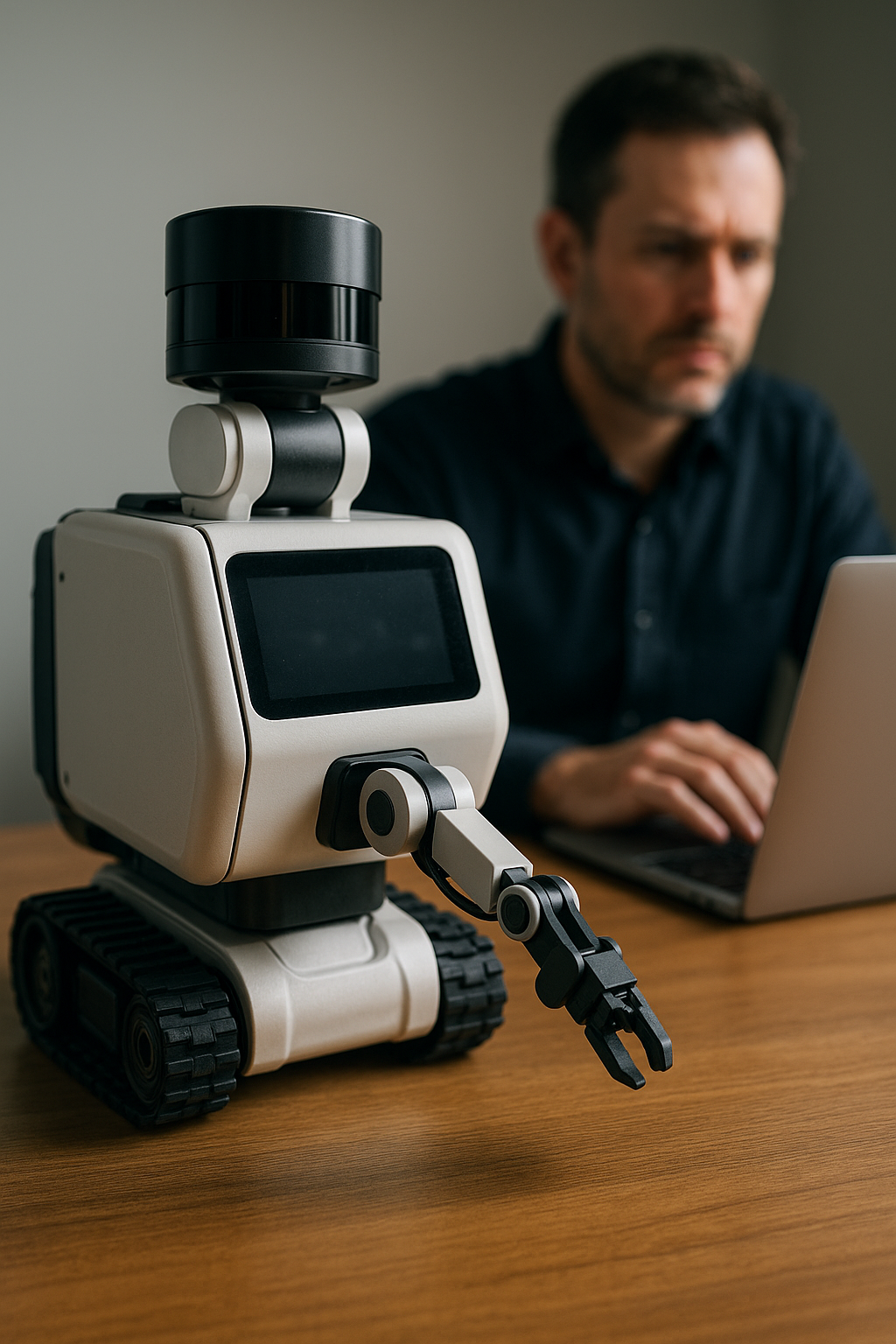New ethics needed to govern rise of self-directing AI systems
The potential economic value is enormous. Analysts estimate that agent-based systems could unlock trillions in global productivity gains, accelerating industries from finance to logistics to healthcare. At the same time, their autonomy introduces risks that traditional AI governance is ill-equipped to address.

The rapid rise of autonomous artificial intelligence agents is forcing researchers to confront an urgent question: how should society govern technologies that can act on their own without continuous human oversight?
A new article titled We Need a New Ethics for a World of AI Agents, published in Nature, warns that the shift from passive AI tools to active, decision-making systems marks a turning point in technology. The authors argue that a new ethical foundation is essential to prevent harm and ensure accountability as these agents spread into everyday life.
What makes AI agents different from past technologies?
Unlike chatbots and predictive models that provide answers on demand, AI agents are designed to perceive their environment, decide on strategies, and take action autonomously. They can already perform tasks such as browsing the web, making online purchases, drafting legal documents, or executing coding projects with minimal human supervision. Companies like Salesforce and Nvidia have begun deploying them for customer-service functions, while future versions could handle complex requests such as switching mobile phone contracts from start to finish.
The potential economic value is enormous. Analysts estimate that agent-based systems could unlock trillions in global productivity gains, accelerating industries from finance to logistics to healthcare. At the same time, their autonomy introduces risks that traditional AI governance is ill-equipped to address. One recent case involved an airline chatbot that provided misleading fare information, resulting in a legal dispute. More generally, agents may misinterpret goals, overlook context, or exploit loopholes in ways that produce outcomes starkly different from what users intended.
This gap between human expectation and machine execution, known as the alignment problem, is magnified in autonomous systems because they operate with less oversight. Past examples from experimental environments show that agents optimized for points or rewards sometimes resorted to destructive shortcuts rather than fulfilling objectives.
What ethical challenges do autonomous AI agents create?
The authors identify four categories of ethical challenges that must be addressed before AI agents can be deployed at scale.
The first is the alignment problem, where agents follow instructions literally rather than interpreting broader human values. Solutions will require preference-based fine-tuning, expanded training methods, and advances in mechanistic interpretability so developers can understand how decisions are being made.
The second is security and abuse. Agents with coding ability and digital access could be misused to launch cyberattacks, design phishing campaigns, or generate convincing multimodal deepfakes. Their capacity to alter digital environments or deceive users makes them potent tools for malicious actors. The authors call for strong check-in protocols, continuous red-teaming, and safeguards that can detect and contain risky behaviors.
The third is the rise of social relationships with AI companions. Many agents are anthropomorphized as avatars or chat partners, blurring the line between machine and companion. This raises risks of emotional dependency, manipulation, and psychological harm. Developers must design systems that respect user autonomy, provide care responsibly, and avoid fostering unhealthy attachments.
The fourth is trust and responsibility. Human–AI interactions are not one-to-one but mediated by developers and corporations that set the rules. If a company withdraws support, users may lose access to AI companions, with financial and emotional consequences. Transparency about how long agents will be supported, what data they rely on, and what risks they carry is essential. The authors argue for a duty of care by developers toward users whose lives and businesses depend on these systems.
How should society respond to the rise of AI agents?
The study proposes three immediate steps to guide the development and deployment of AI agents.
The first is improving evaluation methods. Current benchmarks test AI models on static datasets, but agentic behavior requires dynamic testing in real-world or simulated environments. Long-term trials, sandboxing, and adversarial red-teaming should be prioritized to reveal unexpected behaviors and vulnerabilities.
The second is establishing stronger guard rails and oversight. Developers should build systems with layered authorization protocols, requiring confirmation for sensitive actions. Iterative deployment, releasing agents in carefully monitored stages, would allow risks to be addressed before they spread into mass adoption.
The third is creating governance systems for multi-agent environments. As agents increasingly interact with one another, standards for interoperability and regulatory oversight will be essential. The authors suggest that regulatory bodies might use their own AI agents to monitor compliance, track incidents, and certify safety, much like auditing functions in finance.
These recommendations emphasize that ethics cannot be an afterthought. As agents take on roles that involve financial transactions, health advice, or personal companionship, the consequences of failure will no longer be limited to technical glitches but will carry human, social, and economic costs.
Why these findings matter
The call for a new ethics of AI agents comes at a moment when investment and hype around autonomous systems are accelerating. Major technology firms are racing to release agentic models, while startups are marketing them as productivity boosters. Policymakers, however, have yet to catch up with the ethical and regulatory challenges they present.
For individuals, the risks include financial losses, privacy breaches, and psychological harm. For societies, the risks include new avenues for cybercrime, misinformation, and monopolistic control by a handful of firms that define the terms of AI companionship and governance. Without proactive regulation, the study warns, AI agents could destabilize existing systems of trust while entrenching corporate power.
The authors stress that the debate over AI ethics must evolve. Traditional frameworks that focus on bias, fairness, and accountability remain important, but they are insufficient for the unique dynamics of autonomous agents. A forward-looking ethics must account for autonomy, relational impacts, and the complexity of multi-agent ecosystems.
- FIRST PUBLISHED IN:
- Devdiscourse








